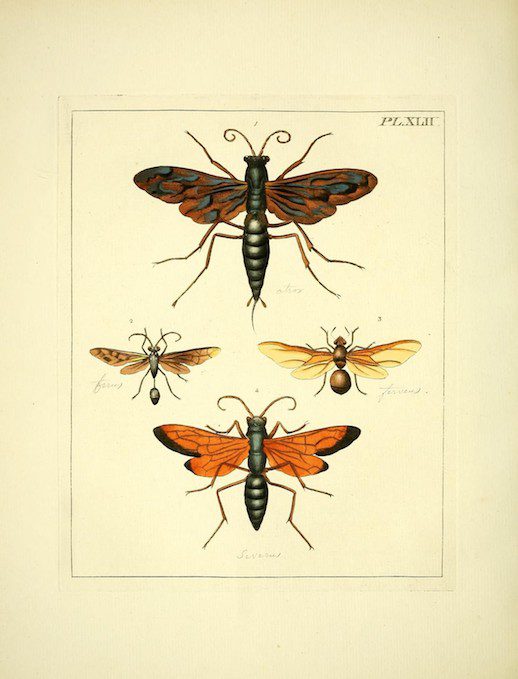The latest tie-up between In The Dark and the British Library celebrated the work of little-known radio producer Nesta Pain. Cheryl Tipp reports back:
 Image courtesy of the Biodiversity Heritage Library.
Image courtesy of the Biodiversity Heritage Library.
Every now and then, the good people of In the Dark join forces with the British Library’s sound archive to deliver a curated evening of radio from days gone by. As the name suggests, these collective listening events are conducted, quite literally, in the dark. A few rays of evening sunshine or the glow of an illuminated fire exit sign are often the only sources of light. But that really is the whole point as, with nothing to distract you, your senses are free to fully engage with the sound.
Early BBC radio features have been at the centre of this special collaboration between In the Dark and the British Library for several years now, and the subject of this most recent foray was Nesta Pain (1905-1995), a writer and radio producer with a passion for nature, science and the darker aspects of life.

Illustrations of natural history. London, printed for the author and sold by B. White, 1770-82.
Having moved from Liverpool to London in 1942, Pain initially joined the BBC as a researcher and writer. Her talents didn’t go unnoticed however, and she soon found herself embedded within the renowned Features Department during the height of its creativity. By all accounts, writers and producers within the department were given free rein to experiment and forge their own creative paths. With seemingly unlimited funds and the trust of her superiors, Pain wasted no time in developing programmes based on her own interests. Many of her early pieces were dedicated to recent scientific advances and she was incredibly successful in winning the confidence of a string of eminent scientists, including the father of Penicillin, Professor Alexander Fleming, who was Pain’s chief advisor on the 1944 play War Against Microbes.
The listening session kicked off with an excerpt from a series of programmes dedicated to insects. Flies So-called focused on the brief yet fascinating lifecycles of flies. Described by Pain as a mixture of “high drama and gothic horror”, this feature used a fusion of music and narration to recreate the beautiful, frantic and sometimes gruesome world of these winged invertebrates. Though the piece sometimes teetered on the edge of twee, Pain’s penchant for the macabre always brought it back from the precipice.
Next up was a clip from The Dock Brief, a legal satire written by a young John Mortimer, years before he would achieve fame through his Rumpole novels. The play follows the relationship between an ageing, mediocre barrister and a prisoner on trial for murder. As they work on a strategy to take on the awaiting courtroom, the pair find themselves developing an unlikely comradery. Though a skilled writer in her own right, Pain was always on the lookout for new talent and struck gold with Mortimer. The Dock Brief went on to win the coveted Prix Italia prize for radio drama in 1957, a worthy nod to the collective talents of Pain and her small team.
The listening session closed with There Will Come Soft Rains, a radio adaptation of the short story by science fiction author Ray Bradbury. The story focuses on an automated house busily working away in a post-apocalyptic land devoid of human life. Instruments were used to represent the various activities; my personal fave was the robotic cleaning mice whose energetic comings and goings were personified by sequences of fast-paced, erratic notes from a harpsichord. As with much of her work, There Will Come Soft Rains was very much considered an experiment by Pain and was one of the last programmes she created for the Features Department before its closure in 1964. The radio critic Martin Shuttleworth was not at all convinced however, describing the feature as a “marshmallow”, with no real substance gluing together the production, music and story. To be fair, his criticisms stemmed from what he perceived as failings in Bradbury’s story rather than Pain’s capabilities as a producer, but nobody really wants their work to be likened to a podgy piece of sugary confection.
A short Q&A wrapped up a brilliant evening that shone an enlightening and enriching spotlight on a hugely talented BBC producer who, along with many others, has unfortunately faded into obscurity. Now, thanks to In the Dark and the British Library’s extensive BBC radio recordings, I know a room full of a people who will always remember the name Nesta Pain.
*
Cheryl Tipp is Curator of Wildlife & Environmental Sounds at the British Library. See her previous pieces for Caught by the River / follow her on Twitter.